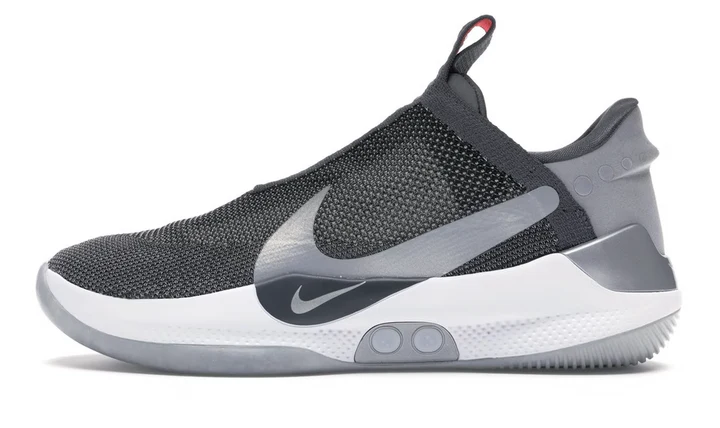Nike is not just a brand; it’s a cultural phenomenon that has influenced the world of sports, fashion, and lifestyle. Founded in 1964, Nike has grown into one of the most recognized and respected athletic brands globally, known for its innovative products, impactful marketing, and commitment to performance. This article explores Nike’s history, key products, cultural significance, and sustainability efforts, showcasing why it remains a top choice for athletes and fashion enthusiasts alike.
1. The History of Nike
Nike began as Blue Ribbon Sports, founded by Phil Knight and Bill Bowerman. Initially, the company operated as a distributor for Onitsuka Tiger, a Japanese shoemaker. In 1971, Knight and Bowerman decided to launch their own line of footwear, which led to the creation of the Nike brand. The name “Nike,” derived from the Greek goddess of victory, symbolizes the brand’s commitment to athletic excellence.
The iconic Swoosh logo, designed by graphic design student Carolyn Davidson, was introduced in 1971. The logo quickly became synonymous with the brand and is now one of the most recognizable symbols in the world.
2. Key Products and Innovations
Nike is known for its diverse range of athletic footwear, apparel, and accessories. Some of the brand’s most notable innovations include:
A. Nike Air Technology
Launched in the late 1970s, Nike Air technology revolutionized athletic Nike Air Max 90 footwear by incorporating air cushioning in the midsole. This innovation provided enhanced comfort and shock absorption, making it a favorite among athletes. The Nike Air Max series, introduced in 1987, showcased this technology with its visible air unit, setting new standards in sneaker design.
B. Dri-FIT Fabric
Nike’s Dri-FIT technology, developed in the 1990s, uses moisture-wicking fabrics to keep athletes dry and comfortable during physical activities. This innovation has become a staple in Nike’s athletic apparel, making it ideal for a variety of sports and workouts.
C. Flyknit Construction
Introduced in 2012, Nike Flyknit technology offers a lightweight, form-fitting design that reduces waste during production. This innovative knitting process allows for a sock-like fit, providing support and flexibility for athletes. The Flyknit series, including the popular Nike Flyknit Racer, has gained a loyal following for its comfort and style.
D. Sustainable Products
In recent years, Nike has focused on sustainability by developing eco-friendly products. The Nike Space Hippie collection, made from recycled materials, exemplifies the brand’s commitment to reducing its environmental footprint while maintaining performance and style.
3. Cultural Significance
Nike has significantly impacted popular culture beyond the realm of sports. The brand’s marketing campaigns often feature high-profile athletes, such as Michael Jordan, Serena Williams, and LeBron James, which have helped elevate its status as a symbol of excellence.
A. The Air Jordan Legacy
The Air Jordan line, launched in 1984 in collaboration with basketball legend Michael Jordan, transformed the sneaker industry. The original Air Jordan sneakers became a cultural icon, influencing fashion and streetwear. The brand’s collaboration with Jordan has since expanded into a lifestyle line, blending performance and style for sneaker enthusiasts.
B. Nike and Music
Nike has also made its mark in the music industry, partnering with artists like Travis Scott and Drake to create exclusive sneaker releases. These collaborations have garnered immense hype and have become highly sought-after items among fans and collectors.
C. Social Activism
Nike has not shied away from addressing social issues. The brand’s “Just Do It” campaign has evolved to promote messages of inclusivity and empowerment. Notable ads featuring athletes like Colin Kaepernick have sparked conversations around social justice, further solidifying Nike’s position as a leader in both sports and activism.
4. Nike’s Commitment to Sustainability
In response to growing environmental concerns, Nike has made significant strides towards sustainability. The company aims to minimize its carbon footprint and promote responsible manufacturing practices. Key initiatives include:
A. Move to Zero
Nike’s “Move to Zero” initiative is a commitment to achieving zero carbon and zero waste. The program focuses on using sustainable materials, reducing water usage, and implementing eco-friendly production methods.
B. Recycling Programs
Nike has established recycling programs, such as the Reuse-A-Shoe initiative, which repurposes old sneakers into materials for playgrounds, tracks, and other athletic surfaces. This program encourages consumers to recycle their footwear instead of discarding them, reducing landfill waste.
C. Sustainable Materials
The brand is increasingly incorporating sustainable materials, such as recycled polyester and organic cotton, into its products. By using these materials, Nike aims to reduce its environmental impact while providing high-performance gear for athletes.
5. Nike’s Global Reach
Nike’s presence extends beyond the United States, with a strong global footprint. The brand has established retail stores and partnerships in various countries, making its products accessible to a diverse audience. Nike’s ability to adapt to local markets while maintaining its core identity has contributed to its success worldwide.
6. Conclusion: The Enduring Legacy of Nike
Nike’s combination of innovation, cultural significance, and commitment to sustainability has solidified its status as a leader in the athletic industry. From its humble beginnings as a distributor to becoming a global powerhouse, Nike continues to inspire athletes and fashion enthusiasts alike.
As the brand moves forward, it remains dedicated to pushing the boundaries of performance and style while addressing pressing environmental issues. Whether you’re hitting the gym, running errands, or making a fashion statement, Nike offers essential pieces that blend functionality with style, making it a staple in any wardrobe.
FAQs
Q1: What is Nike known for?
Nike is known for its innovative athletic footwear, apparel, and accessories, as well as its impactful marketing campaigns and collaborations with high-profile athletes.
Q2: What are some of Nike’s most popular products?
Some of Nike’s most popular products include the Air Max series, Air Jordans, Dri-FIT apparel, and Flyknit shoes.
Q3: How does Nike contribute to sustainability?
Nike contributes to sustainability through initiatives like Move to Zero, recycling programs, and the use of sustainable materials in its products.
Q4: Who are some notable athletes associated with Nike?
Notable athletes associated with Nike include Michael Jordan, Serena Williams, LeBron James, and Colin Kaepernick.









